
Hello hello, fellow creatives! I hope you are well and safe where you are. As a friend of mine said on Facebook, Wisconsin seems to be stuck in a snow globe that some cosmic child keeps shaking.
Winter may be magical, but I think we’re all up for a different kind of magic, wouldn’t you say? Let’s add some fantastic wonder to our writing and reading lives with the help of the ever-magical dark fantasy author Ronel Janse van Vuuren.
Thank you for taking time to share your thoughts, Ronel, as well as your stories. I see you’ve got a stunning free ebook available for those who sign up for your newsletter. You describe Unseen as a trio of stories that dive into folklore about the mistress of the veil. I love how deep you dig into folklore and mythology to craft unique stories for modern readers. What kinds of research do you do, and how long do you spend researching before beginning a book?
Thank you. I get an idea for a story. Then I flip through one of my folklore books (whichever one catches my eye that day) and I’ll read through the entries until something clicks. Then I’ll go and research whatever I found on sacredtexts.com where all the books about folklore and mythology that have lapsed copyright live online. To keep everything organised and backed up, I’ll create a blog post about it (even if it’s something that has to be scheduled for two years from now) and look at how the thing was used recently in books, movies or games. It takes about two days to do all the research for a blog post and to write it. So, for example, for “Once and Future Queen” there’s the background of the Rift, Faerie, Seelie and Unseelie Courts, Solitary Fae and magic (all which already have their place in previous books and are all fully researched with blog posts written). But the Season Courts and the Elementals were only vague ideas when I planned this book. So four days for the folklore.

But I also used acid attacks, pottery, police procedure, and gardening in the book. I didn’t have to do much research on gardening – only the meaning of flowers – or any research on police procedure (know enough from personal experience). Which left acid attacks and pottery. Both subjects can pull you down the Pinterest rabbit hole. For the acid attacks, though, I just stick to following @stopacidattacks on Instagram because there are so many resources – and heart-breaking photos.
So for “Once and Future Queen”, I took a week to research everything I needed to know before writing. Plotting is a whole other beast!
Noooo kidding. I was just working on a synopsis for a new trilogy, and worldbuilding the hazy bits is EXHAUSTING. Do you consider plotting to be the toughest part of your artistic process, or would it be something else?
To stop dreaming and to start doing. I create all these stories in my head, talking to characters for hours – and then I remember that I can’t plug a USB cable into my head and download the story to my computer, I actually have to type it. And my head works a lot faster than my fingers (despite typing at a crazy speed that means replacing my keyboard three times a year).
Heavens, that’s a lot of keyboards! I wish I could type that fast, but I get distracted by kids learning from home…or a phone call from the principal when they’re at school. (Sigh) That just does my creativity in. What is your writing Kryptonite?
Shiny new ideas. And stationary! Weird, but these can keep me distracted from what I’m actually working on. I shouldn’t be left alone anywhere that notebooks, pens or anything else deemed “stationary” can be found. I even have a Pinterest board about stationary… https://za.pinterest.com/miladyronel/got-to-love-stationary/
Ha! This is why I can’t hang out in used bookstores or at library sales. I’m always distracted by the possibilities! You mention another big struggle with focus, though, regarding your ADHD, especially after you published your first book. How did publication change your process of writing?
Yes! First, I had to rein in my ADHD. It meant that I had to change the set-up of my writing cave (desk faced away from windows, drapes drawn during the day, internet access hidden until nightfall, phone set to aeroplane mode, etc.) to optimise focus. Then I had to work out an editorial and a writing calendar. It took some time, but I finally have one that is flexible enough to be changed if I have sick days (I hate getting flu because someone two streets away sneezed) or if I get the chance to join an online writing summit (the Women in Publishing Summit the first week of March every year is well-worth attending). I’m usually six months ahead with my work. Before I made this shift, I would jump from project-to-project never finishing anything – I still have folders full of half-finished ideas that I’m turning into amazing stories.
I have quite the list of half-finished ideas, too. Heck, some of them are even on this site, if one wishes to check out What Happened when Grandmother Failed to Die. 🙂 Would you say writing energizes you, or does it exhaust you?
Planning, plotting and researching are energising phases, mainly because it’s all new and shiny – and I can do it in any order which suits my ADHD quite nicely. Writing, on the other hand, is exhausting. Not only does it require me to slip into the mind and skin of the character, feeling what the character is feeling, experiencing what the character is experiencing, and going through time at hyperspeed, it also takes a lot out of me mentally, emotionally and physically to be in that mental space for hours at a time (and it’s painful on my carpal tunnel, leaving me with swollen hands at the end of the writing day). For example: after writing one complete story line in one sitting in “Once and Future Queen”, I was in tears à la Joan Wilder in the opening scene of “Romancing the Stone”. Yeah. Hopefully readers will have the same reaction.
I think we all hope our books pull at something deep within our readers, just as other books have done to us. What’s your favorite under-appreciated novel and why?
“Ushig” by Annemarie Allan is my favourite novel that seems to be invisible on Goodreads. I bought it a decade ago on an online store (as a paperback – I love paperbacks!) and it was so dark and thrilling I just had to read it again to figure out whether I liked or hated it. It introduced me to the Celtic water horse, the ushig, and made me want to learn more about the different types of water horses across cultures.
Have you ever gotten reader’s block?
Unfortunately, yes. For a long time, almost a year, I struggled to read. I pretended that it was because of bad grammar or something silly story-wise that pulled me from the book, but it was as if I just couldn’t read. Then I found this amazing series about faeries by another South African author and it was like coming up for air. Maybe the books are better in my head than they actually are, but after reading three (there are nine primary works and three companion books) I felt like I loved reading again. So I space reading the books out in case reading becomes dull again (it took me two years doing it like that to read the entire series).
Click here to read my reviews about the “Creepy Hollow” series.
Thank you for the recommendation! Such books really motivate us to find the settings that inspire their authors. What literary pilgrimages have you gone on?
I’ve done virtual pilgrimages to New Orleans (vampires, am I right?), several locations in France (the Bastille, anyone?), and Bath (Jane Austen knew her stuff). My first literary pilgrimage happened by chance when I was a tween: I read this amazing book I had borrowed from the school library (can’t remember the title, though it had something about running in it) and it mentioned a local stadium. A few weeks later, my primary school had a sporting event there and I could see the characters from the book competing in their final sprint. It was absolutely amazing. One day I’d like to do those virtual tours in person so I can experience the physical and imaginary spaces meet as I did that day when I was twelve.
YES–I’d love to visit the lands that inspire my favorite stories. Folks, if there is a place you would love to visit on a literary pilgrimage, please share it in the comments below!
Now, back to writing. You write a good deal of fantasy, both in series form and as standalone stories. Series writing is often the “hot” thing to do from a marketing perspective, but let’s face it–a lot of stories can be told in one book! Can you describe your process for choosing whether a story requires one book or more?
With my current on-going series, the decision was made to do several short books as it isn’t conforming to any publishing norms: the first book (for free on most online retailers) has a couple of flash fiction pieces (defined as a story shorter than a thousand words) followed by the folklore from original (very old!) sources. It serves as an introduction to the series. The second book, exclusive to newsletter subscribers, contains three connected short stories followed by a bit of folklore. Books three and four are flash fiction collections, books five, six and seven are short story collections, books eight, nine and ten are novellas, and the last five will be even longer as they connect storylines from all the books before them.
Readers will either love or hate this way of telling the story. But with so many storylines and characters that tell the bigger story, it was the best way for me to tell it and for readers to consume it (in bite-size pieces). I’ll probably release a box-set when all the books are done (hopefully by the end of this year!).
But for other stories, I stick with one escalating problem per book. In “Magic at Midnight”, Amy saving her pegasi no matter the cost was the core problem, everything else just sort of happened and anything that would have dragged the story beyond one book was cut. There might be more books set in that universe at a future date, but then the series will be connected through a shared universe, not because Amy’s story was dragged out.
Personally, I like to look at TV series to see when they’re dragging a thing out too long. For example: “The Vampire Diaries” ends perfectly at the end of season four when Damon and Elena end up together. The point of the series was to get her to choose her true love between the Salvatore boys, and when she chose the Salvatore I liked, it should have ended. Torturing Damon in season five, Elena being removed from the series in season six, mama Salvatore coming to town in season seven, and the Sirens in season eight were all filler until Damon and Elena end up together anyway. The point? Know what your story is about and cut anything that doesn’t belong.
Excellent advice! There are many traps for writers aspiring and established alike, and we all fall into them at some point. What are the worst you’ve seen?
Most traps are set in “everyone knows” or strongly believing something because it is “what everyone says.” As you move deeper into the writing world and especially the dark side, as Mark Dawson calls indie publishing (he’s a big-name indie author, FYI), you learn that you have to forge your own path and do things your own way. But here are the biggies that is especially prevalent among South African aspiring writers and I believe everywhere else:
- Believing everything Stephen King says in “On Writing” to be gospel. (It’s a good book, but there are other great books about writing, too. See my Goodreads shelf for inspiration.
- Believing that being published through a big publishing house is the only right way to be published.
- Believing that having an online presence as an author shouldn’t be done until a publisher tells you to do so.
- Being so desperate to have that publishing deal, that they’ll sign their rights away without thinking twice.
These are definitely major assumptions we’ve got to work on changing. Considering your experience in writing and publishing, what would you say is the most unethical practice in the publishing industry?
There are several. Some I even fell for as a newbie author. To be absolutely safe, I suggest checking out “Writer Beware” run by Victoria Strauss.
Two I would warn about, though, as they aren’t talked about enough.
- Reviewers asking for money. It happens. It’s even acceptable in some places. Even on BookSirens (the best place to find reviewers in one spot) has good reviewers asking for a fee. But here’s the thing: Amazon doesn’t like paid reviews. And if a reviewer contacts you because “they love the blurb and the cover is so gorgeous” you shouldn’t feel flattered: just delete the email. This was a costly lesson. Not only didn’t the reviewer deliver on her end (despite shining testimonials and seeing all the proof that it is money well spent), she got my surname wrong. Building your own review team organically is the best way to get honest, proper reviews for your books.
- Sponsors of competitions offering more services for your book. Look, at first I didn’t think twice about it. I knew nothing about indie publishing and thought the amount the “self-publishing with support” company was asking to convert my book into an ebook was reasonable (the prize of printed books I’d won was worth more than twice that). The promises of promotion and all the other things that sound good (getting your book into a brick-and-mortar store) didn’t happen. And despite telling them what the price for the ebook should be, I found it for five times the price on the (only) store they’d published it to. With Amazon, you can easily convert your own ebooks (with Kindle Create) and your paperbacks (either with Kindle Create or with their templates) for free, you can hire freelancers on Upwork to do it for you, and you can format your ebooks easily on Draft2Digital for free. It doesn’t have to cost as much as the printing of a couple dozen books – for an epub “that you can load to Amazon” (tip: Amazon prefers mobi or Kindle Create (kpf) files).
Thanks you SO much for taking time to chat with me, Ronel! Let’s wrap up with a little marketing advice that helps fellow indie authors avoid those unethical practices and helps them connect their stories to readers. What have you found to work with marketing your own books?
Being authentic. Readers want to connect with the person behind the words. It’s not always easy. I mean, going through the process of your furbaby dying is excruciating enough without sharing it on Instagram, but sharing those real moments in your life help readers to feel like they really know you. The same with sharing a new haircut. Some things are off-limits, like the parts of my life connected to others who don’t want to be on the internet, but I share enough without over-sharing. It works a lot better than doing cover reveals, blog tours and all the other “must-do” marketing things put together. (Though I still love doing cover reveals and blog tours.)
Thank you for having me.
Anytime, Ronel! Folks, I hope you can check out Ronel’s site and all her amazing books.
~STAY TUNED!~
A random library selection has taken me down some new roads of worldbuilding. I hope you’ll join me as I ride the rails and roads through some fantasies of other-wheres…
Read on, share on, and write on, my friends!



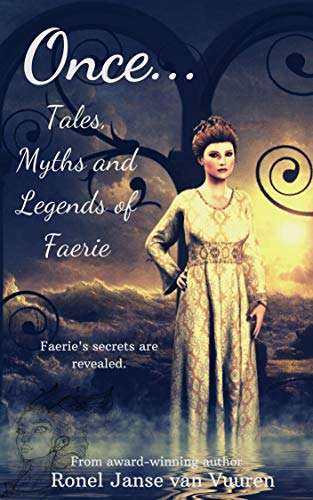
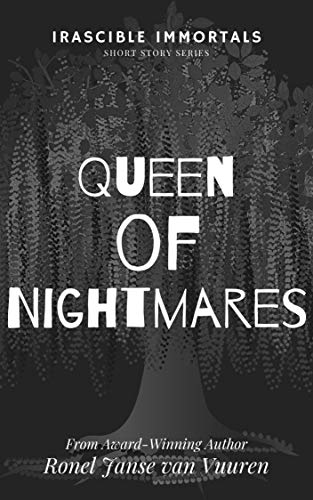
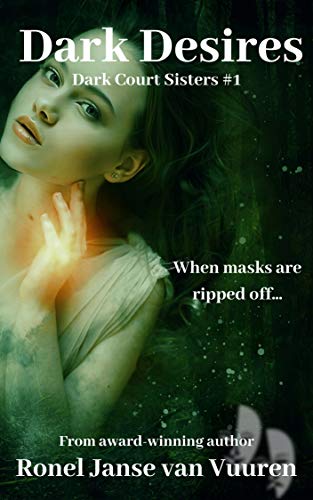
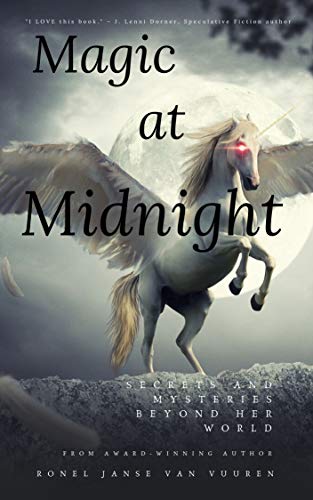

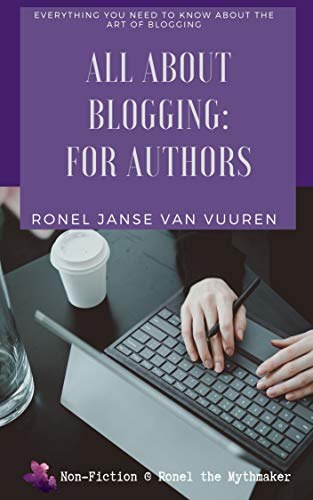
🙂☀️❄️❄️❄️☀️🙂
LikeLiked by 1 person
Many thanks, my friend! I hope you’re well. 🙂
LikeLiked by 1 person
Good morning Jean and you’re welcome! We are all well and hope your family and you are the same…Wishing you a wonderful Tuesday. 🙂☀️🙂☀️🙂
LikeLiked by 1 person
Many, many thanks, my friend! We’re taking one day at a time, to be sure. 🙂
LikeLiked by 1 person
‘…a place you would love to visit on a literary pilgrimage’. There’s a question and a half, Ms Lee. There is a small town in Belgium I’ve both driven through many times and once out of curiosity parked-up and wandered. ‘Tis of town of bland architecture, expensive cars in driveways, locked up shops, feral cats and pigeons who rarely take to the sky. The thing is…and dear Shirl can verify this…we’ve yet to see a single human being. It is to this place I would end my literary pilgrimage. I feel there is a story to steal there.
My best wishes to both you and Ronel Janse van Vuuren. The Old Fool
LikeLiked by 2 people
Oooo, there’s a story tucked into the shops and alleys, I’m sure. The cats won’t talk, and the pigeons too afraid to attempt adventure elsewhere. Come to think, there’s a few cities in Minnesota my husband swears are only populated by a dozen people, but that they rotate through the different houses and streets so as to make the state appear more populated. Perhaps it’s a global conspiracy…
LikeLiked by 1 person
Belgians tend to play a lot of darts. I suspect that they are all indoors throwing darts at walls. ‘Tis that or a zombie infection.
LikeLiked by 1 person
it was nice to meet Ronel and learn about another author’s work process off to check out her work on Amazon.
LikeLiked by 2 people
Thanks so much, Friend! Hope you’re well xxxxxxx
LikeLiked by 1 person
I am Jean – sending love and best wishes across the Atlantic Sea to you. Px
LikeLiked by 1 person
A great interview ladies. Always nice to meet another Milady x
LikeLiked by 3 people
Lovely words from a lovely soul. 😉 Thank you, Sweet Lady Shey! I hope you and Mr. are well 🙂 xxxxxx
LikeLiked by 1 person
Fascinating interview. Great to learn more about Ronel. Hope your snow melts soon. We’re all good and hope you are too.
LikeLiked by 2 people
Many thanks, Peggy! The temperature is finally supposed to warm a little over this week, creeping away from 0 towards the teens and eventually the thirties. I don’t mind the snow too much–so long as we can be out in it! 🙂
LikeLiked by 1 person
Wonderful interview with another star writer. Apparently we will have gone from snow to T-shirts and shorts by Thursday. Even the weather is odd these days. Hope your smiling xxx
LikeLiked by 2 people
It certainly is, Friend! We seem to be rushing into a thaw right now, which is fine, but knowing Wisconsin as I do, we’ll likely get another blizzard or two right around Easter. Wisconsin’s such a jester like that. 🙂 Hope you and Hawklad and Captain Chaos are finding some peaceful moments as the chaos of warmer months slowly approach!
LikeLike
How lovely to meet Ronel, a fellow South African author, no less! Thanks for the introduction, Jean, I shall check her out 🙂
Hope you and the family are keeping well, my friend? xxx
LikeLiked by 2 people
YES! We are doing well, Chris, thank you! Taking one day at a time with the school work; just found out I’m presenting for a university conference and am currently trying to see if I can make a blog post out of it 😉 Let’s see….Blondie’s working on her own book! Oooh, I should totally get her on here for that, too! She’s been very excited about the cover art, but I don’t know how much she’s written yet, lol. How are you?
LikeLiked by 1 person
That all sounds very exciting, Jean. You must tell us about the conference and I’d love to see how Blondie’s book is shaping up! Will there be dragons? Hope so!
I just saw your review of the JLC novel on Goodreads – a book I just happened to pick up from the second-hand bookstore about a week after you wrote your post about it. Yet another cover, perfect condition, less than $2 – and it’s green!!
LikeLiked by 1 person
LOL! And here I’ve never seen it green here! But finding those old pulp editions requires church bazaar or community flea market places. Hmmm. Guess I know what I’ll be doing this summer, then! 🙂 Yes, Blondie’s got dragons, and foxes, and wolves–oh, I should see if she’ll let me share her cover in the blog! The conference will be virtual–which is fine–and it will be about all sorts of teachery things, but I’m hoping the presentation I’ll be doing on the importance of respecting student names could be applied to a post here. Names are SO amazing, but being the Wonder Bread White Midwesterner that I am 🙂 the wonder of names was lost to me when I was a kid. I just knew my name was dull. So I think getting into the socio-ethnic importance of names would be fascinating as both an educator and as a writer. After all, we take all sorts of time to name our characters. Why do we? Let’s talk about it! (I mean, when I blog, anyway, lol)
LikeLiked by 1 person
I’d like to hear about the importance of names. You can’t get much duller than mine either. There’s a lot to think about when it comes to naming characters… and the background to where people’s names originate, particularly in such a diverse country like SA, is fascinating.
LikeLiked by 2 people
Yes, exactly! When my students told me I was the first teacher to take time and learn how to pronounce their names, I was shocked. I thought everyone did that! That’s what spurred my proposal for the presentation at the conference. I’m so happy it got accepted…course now I have to make a presentation and research and stuff, but I bet some of that research will be fun to share here, sooooo hooray for two birds and all that, lol.
LikeLiked by 1 person
My favourite literary pilgrimage was my trip to Cornwall to see all the sites related to Arthurian legend for my WIP 😀
I could ramble for ages about Stephen King. His insistence TV is bad and writers should ‘write every day’ are bits of advice I ignore as they don’t work for me!
I feel like I’ve known Ronel for ages, yet I still learned a few things. Magic at Midnight was so good, I’m still hoping for more in the series 🙂
LikeLiked by 2 people
Thank you so much for sharing, and yes–Ronel’s such a joy to know!
I enjoyed seeing bits of Ireland so important to James Joyce, and I’d love to go on more adventures that inspired storytellers where I am. Sigh, some day, right? Yes, the advice of other writers, especially those who have all the time in the world for writing every day, I just…nope! All the nopes. 🙂
LikeLiked by 1 person
I’d love to go to Ireland too, hopefully we get to travel again some day soon 🙂 Exactly, it’s easy for Stephen King to say ‘write and read every day’ because writing is his full time job! Totally not practical for everyone 🙂
LikeLiked by 1 person
As ever, your interview with Ronel is a joy… I love discovering how other writers tick – it’s always fascinating to discover how differently we all work and what fires us up… And I couldn’t agree with her comments about the scam artists out there looking to rip off writers – it’s an ongoing problem. Ditto her comments about Stephen King’s book. It’s an interesting read, but a lot of his writing advice – particularly about getting published – is very out of date. And I still think that writing advice has to be couched in the broadest terms, because the one think I learnt as a writing tutor of 10 years – is that what sparks our creativity is as various as we are… Thank you for this!
LikeLiked by 1 person
Yes, exactly so! I think that’s why I love chatting with other writers so much–we all have such unique processes that work *for us*. We can try the best-seller Joe Schmoe’s approach, sure, but few of us have the same circumstances and stimuli in our environment to reach that same result. 🙂
LikeLiked by 1 person
Yes, it’s slow and steady for me at present. No point in throwing anything much in the way of hard cash for promos, etc, just yet… But like you say – it’s always interesting to see how other folks work:))
LikeLiked by 1 person